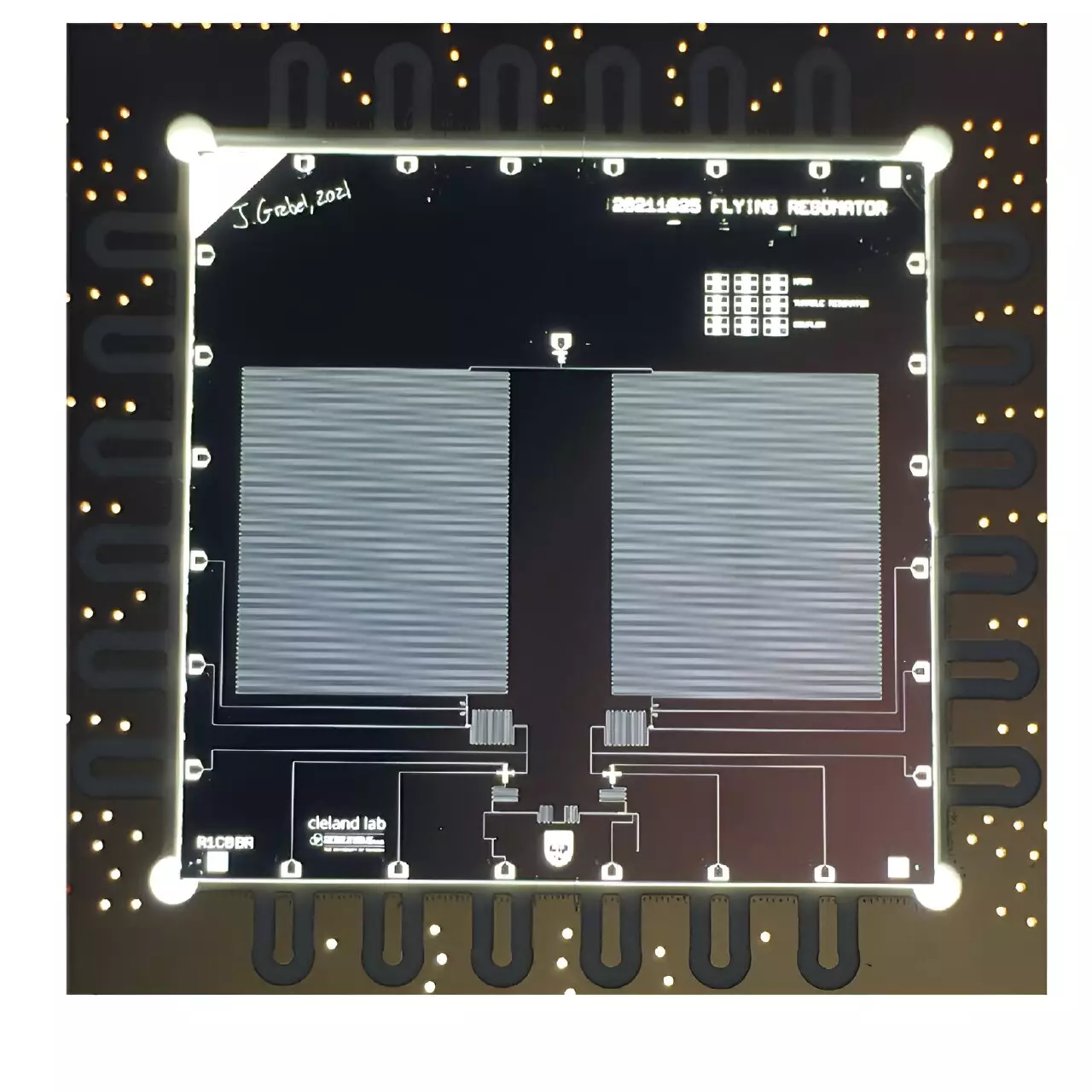Quantum physicists and engineers have been striving to develop innovative quantum communication systems over the past few decades. These systems serve as testbeds to evaluate and advance communication protocols. Recently, researchers at the University of Chicago introduced a new quantum communication testbed with remote superconducting nodes and successfully demonstrated bidirectional multiphoton communication on this testbed. This breakthrough, outlined in a paper published in Physical Review Letters, opens up new possibilities for efficient communication of complex quantum states in superconducting circuits.
In previous studies, the research team demonstrated the generation of remote entanglement and the transmission of complex quantum states, one qubit at a time. However, in their most recent study, the researchers aimed to send complex quantum states representing multiple qubits simultaneously. To achieve this, they loaded the quantum state into a resonator and transmitted the entire resonator state through the transmission line, capturing it with a remote resonator for subsequent analysis.
Resonators, devices that exhibit electrical resonance, have infinite quantum levels, making them capable of storing complex states that encode several qubits’ worth of data. Leveraging the advantageous characteristics of resonators, the researchers connected two superconducting qubits to tunable superconducting resonators, which were further linked to a transmission line through a variable coupler. By using one superconducting qubit to program different quantum states into its companion resonator, the researchers could release the possibly complex quantum state from the resonator into the transmission line. The state was then transmitted as a set of entangled mobile photons, caught by the other resonator, analyzed using its qubit. This bidirectional system proved to be effective in the transmission of microwave frequency photons and various photon Fock states.
Building upon their previous advancements, the research team successfully generated N00N states, which represent entanglement between the two resonators. They first realized the generation of the entangled state |10> + |01> with one photon shared between the two resonators, and then achieved the state |20> + |02> with two photons shared in the same manner. This breakthrough demonstrates the feasibility of highly efficient communication of more complex quantum states, surpassing the limitations of single photons.
The introduction of this new quantum communication testbed presents promising opportunities for further research and advancements. Firstly, it opens up possibilities for realizing distributed computing, where each node in a circuit performs computations and communicates results to another node efficiently. Additionally, this testbed could be instrumental in demonstrating systems where two nodes share a complex state and perform distinct manipulations on it. Furthermore, the platform has potential applications in quantum communication, enabling the transmission of coded quantum information of varying complexities in a single transfer.
The groundbreaking research conducted at the University of Chicago introduces a unique quantum communication testbed with remote superconducting nodes. Through this testbed, the researchers successfully achieved bidirectional multiphoton communication and transmission of complex quantum states. Leveraging resonators and advanced techniques, they were able to generate N00N states and pave the way for more efficient communication of complex quantum states between quantum nodes. This breakthrough sets the stage for future advancements in quantum communication systems and opens doors to a wide range of applications, from distributed computing to more secure and efficient quantum information transfer.


Leave a Reply